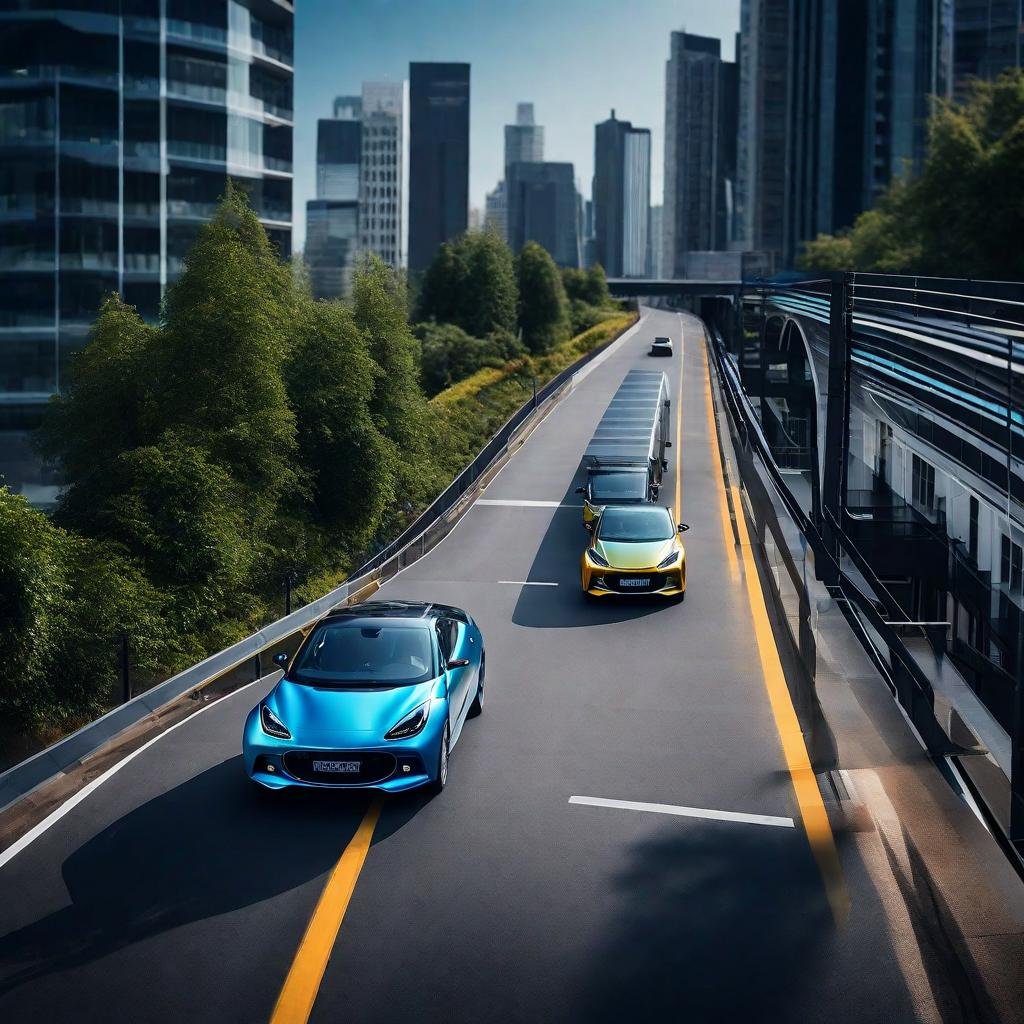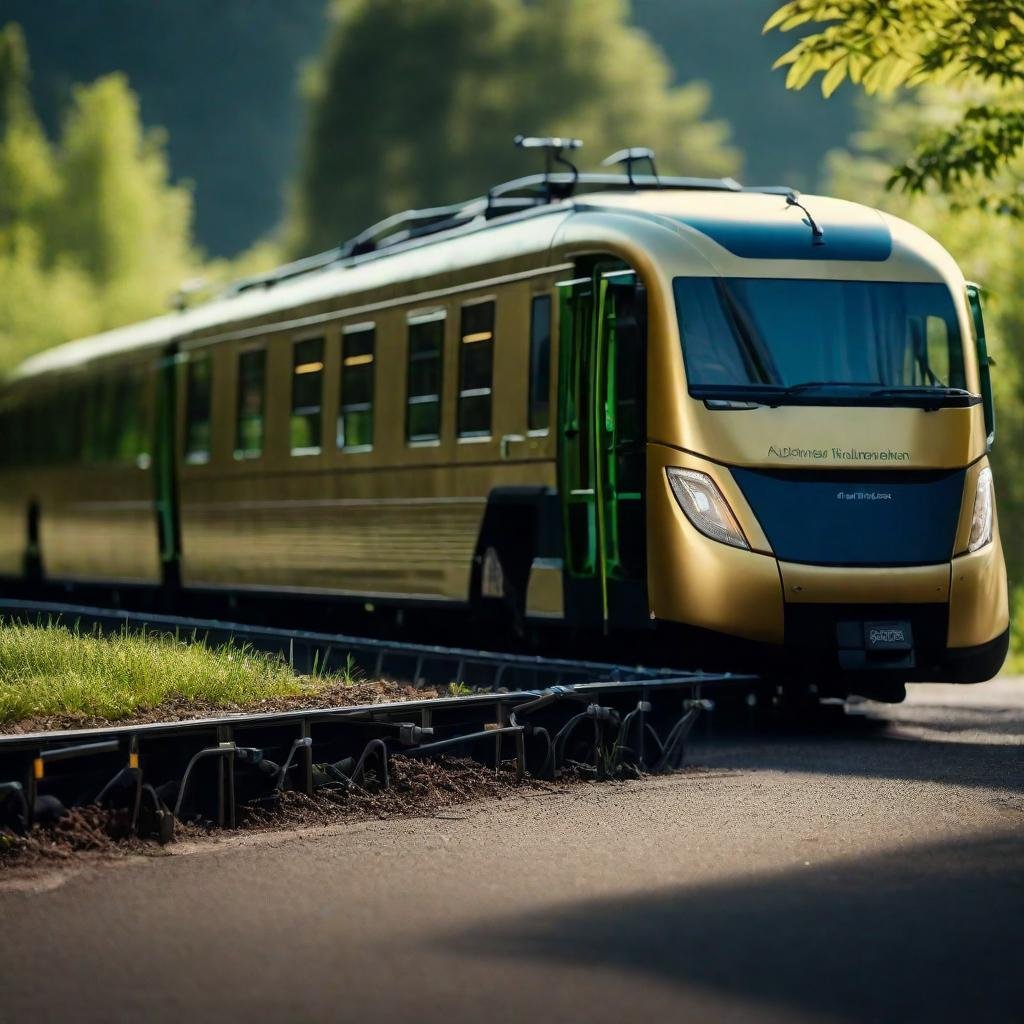Introduction: The future of personal transportation
Welcome to ChangeofTech.com, where we explore the ever-evolving landscape of technology. In this blog, we delve into the exciting realm of personal transportation, navigating through the present advancements and forecasting what lies ahead in “the future of personal transportation.”
Table of Contents
A Glimpse into Today's Commute
In our fast-paced world, personal transportation is undergoing a significant transformation. Whether it’s the rise of electric vehicles (EVs), smart cities, or innovative mobility solutions, we are witnessing a shift in the way we move. Let’s unravel the present scenario and set the stage for the future.

Electrifying the Road Ahead

The future of personal transportation is undoubtedly electric. With a surge in environmental consciousness, electric vehicles have taken centre stage. From sleek electric cars to efficient e-bikes, advancements in battery technology are making these vehicles more accessible and sustainable. The era of fossil fuels is gradually giving way to the silent hum of electric engines.
Electric vehicles (EVs) are reshaping the automotive landscape. These eco-friendly alternatives not only reduce carbon emissions but also offer lower operating costs and a quieter, smoother ride. As governments worldwide incentivise electric vehicle adoption, charging infrastructure is expanding, further supporting the electrification trend.
Smart Mobility Solutions
In the quest for seamless connectivity, smart mobility solutions are becoming integral to personal transportation. The integration of artificial intelligence, IoT, and data analytics is creating a network where vehicles communicate with each other and with the infrastructure. This interconnected web enhances safety, efficiency, and overall travel experience.
Imagine a future where your car communicates with traffic signals to optimize your route, or where shared autonomous vehicles provide a convenient and cost-effective mode of transportation. Smart mobility solutions are paving the way for a more efficient and interconnected transportation ecosystem.

Overcoming Challenges on the Horizon

While the future of personal transportation holds tremendous promise, it also presents challenges. Infrastructure development, regulatory frameworks, and societal acceptance are critical factors that will shape how smoothly we transition into this new era.
Overcoming the challenges requires collaborative efforts from governments, industries, and communities. Addressing concerns about the charging infrastructure for electric vehicles, establishing comprehensive regulations for autonomous driving, and fostering public awareness will be crucial in steering us toward a successful future of personal transportation.
Environmental Impact and Sustainable Mobility
In the future of personal transportation, sustainability is not just a trend but a necessity. The environmental impact of traditional vehicles has prompted a shift towards eco-friendly alternatives. From solar-powered charging stations to the use of recycled materials in vehicle manufacturing, the focus is on creating a transportation ecosystem that is kinder to our planet.
Sustainable mobility initiatives are gaining momentum, with manufacturers incorporating eco-friendly practices into the production of vehicles and the development of green infrastructure. As we transition towards a cleaner future, personal transportation will play a pivotal role in reducing our carbon footprint.

The Evolution of Commuting Habits

With the advent of remote work and changing lifestyle patterns, the way we commute is undergoing a metamorphosis. The future of personal transportation acknowledges the need for flexibility and convenience, catering to a diverse range of commuting habits. From shared mobility services to adaptable urban planning, the transportation landscape is evolving to meet the dynamic needs of individuals and communities.
As the traditional 9-to-5 work model becomes less prevalent, personal transportation is adapting to accommodate varied commuting habits. Expectations for on-demand, flexible, and efficient mobility solutions are shaping the development of transportation infrastructure and services.
Connectivity and the Digital Driving Experience
The future of personal transportation is not just about reaching a destination but also about the journey itself. Enhanced connectivity within vehicles and the digital driving experience are shaping a new era of in-car entertainment, navigation, and communication. From augmented reality interfaces to seamless integration with smart devices, the driving experience is becoming more immersive and technologically advanced.
As vehicles become more connected, drivers can expect features like real-time traffic updates, personalized entertainment options, and advanced safety systems. The digital driving experience is not only about convenience but also about creating a connected and enjoyable journey.

FAQs: The future of personal transportation

Q: How will electric vehicles impact the future of personal transportation?
A: Electric vehicles are set to revolutionize personal transportation by reducing carbon emissions, lowering operating costs, and contributing to a sustainable future.
Q: What role do smart cities play in the future of personal transportation?
A: Smart cities integrate technology to enhance transportation infrastructure, creating a more efficient, connected, and user-friendly environment for commuters.
Q: Are autonomous vehicles part of the future landscape of personal transportation?
A: Absolutely. Autonomous vehicles, with their ability to enhance safety and efficiency, are poised to play a significant role in the future of personal transportation.
Q: How will advancements in battery technology impact electric vehicles?
A: Continued advancements in battery technology will lead to increased energy density, longer range, and faster charging times, making electric vehicles even more practical for everyday use.
Q: How does sustainable mobility contribute to the future of personal transportation?
A: Sustainable mobility initiatives, such as the use of eco-friendly materials and renewable energy sources, contribute to a transportation ecosystem that minimizes environmental impact and promotes long-term sustainability.
Q: How is the evolution of commuting habits influencing the future of personal transportation?
A: Changing work patterns and lifestyles are driving the development of flexible and adaptive transportation solutions that cater to diverse commuting habits and preferences.
Q: Will remote work impact the need for personal transportation in the future?
A: The rise of remote work is influencing commuting patterns, with personal transportation evolving to accommodate flexible schedules and the changing dynamics of work and lifestyle.
Conclusion: The future of personal transportation
As we bid farewell to the familiar landscapes of today’s commute, the future of personal transportation beckons with innovation and sustainability. Electric vehicles, smart mobility solutions, and a collective commitment to change are steering us towards a transportation revolution. Buckle up, as we embark on a journey into the future where our commutes are not just efficient but also environmentally conscious, safe, and seamlessly connected. The road ahead is exciting, and the wheels of change are in motion.
In the ever-changing landscape of personal transportation, the future holds exciting prospects. From electric vehicles and smart mobility solutions to sustainability initiatives and a digital driving experience, our journey is poised to become more efficient, connected, and environmentally conscious. As we navigate the roads of tomorrow, embracing change and technological advancements, the future of personal transportation promises a ride that transcends mere transportation—it’s a journey towards a smarter, greener, and more enjoyable way of getting from point A to point B. So, fasten your seatbelts, as the wheels of progress continue to roll towards a transportation revolution that awaits us all.

Pingback: The technology behind Disaster Preparedness In 2024